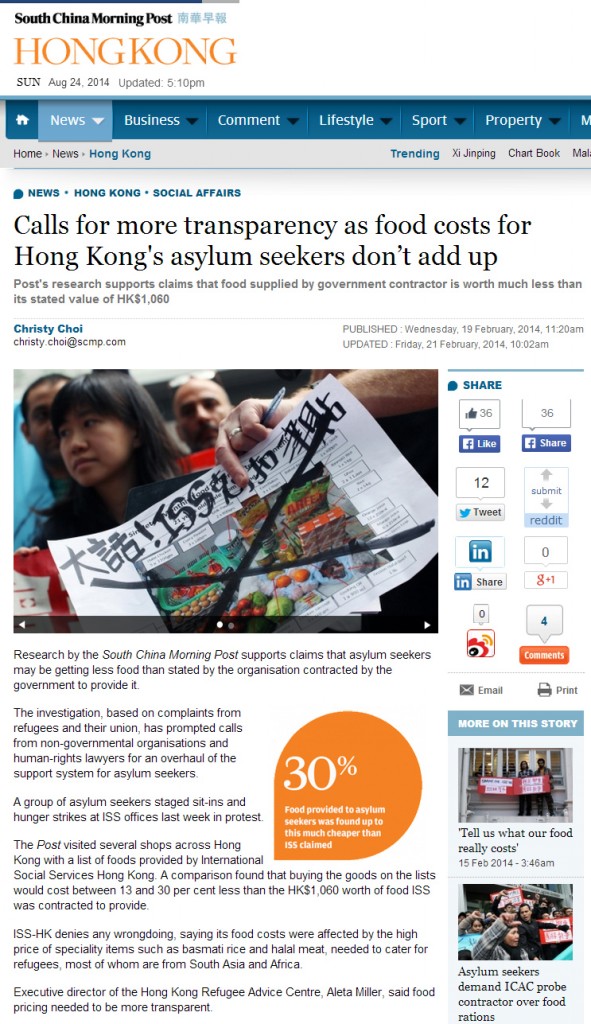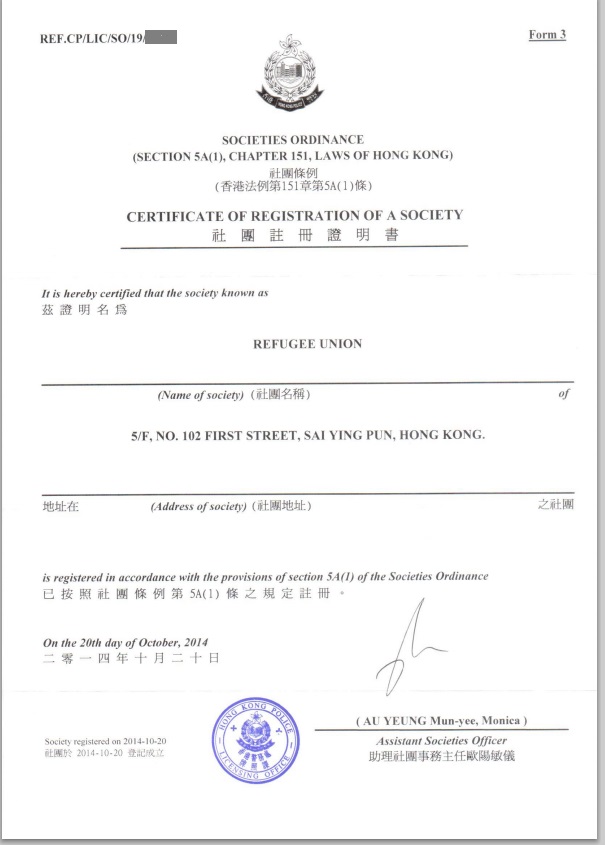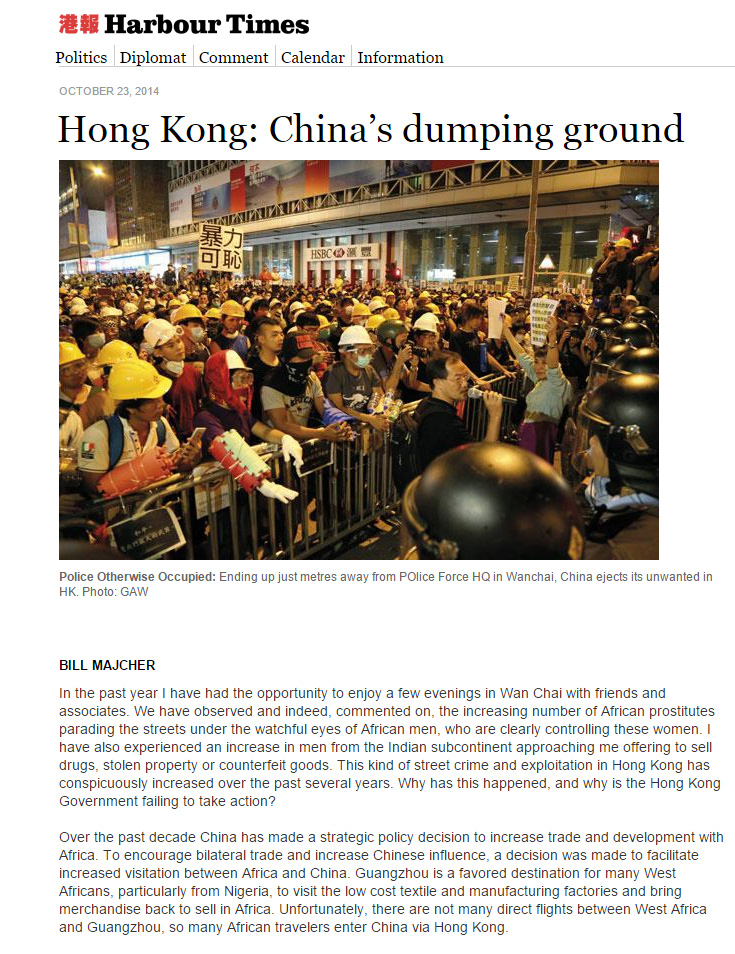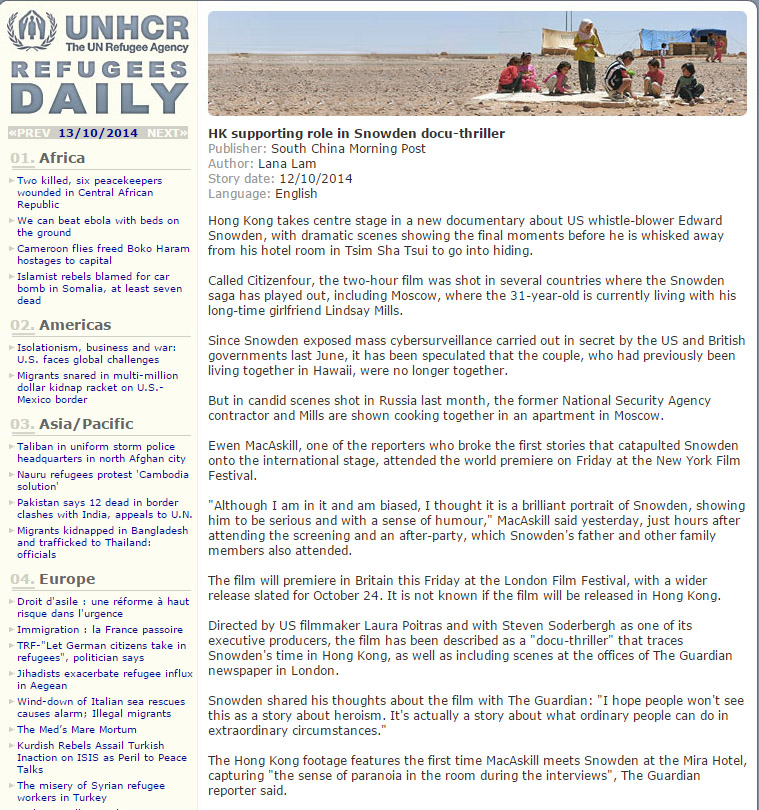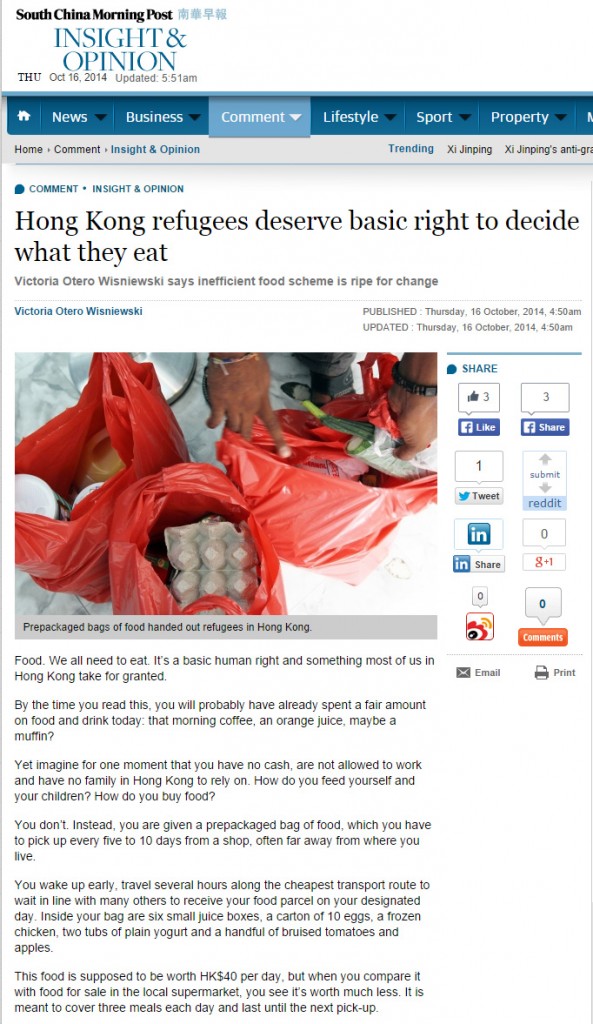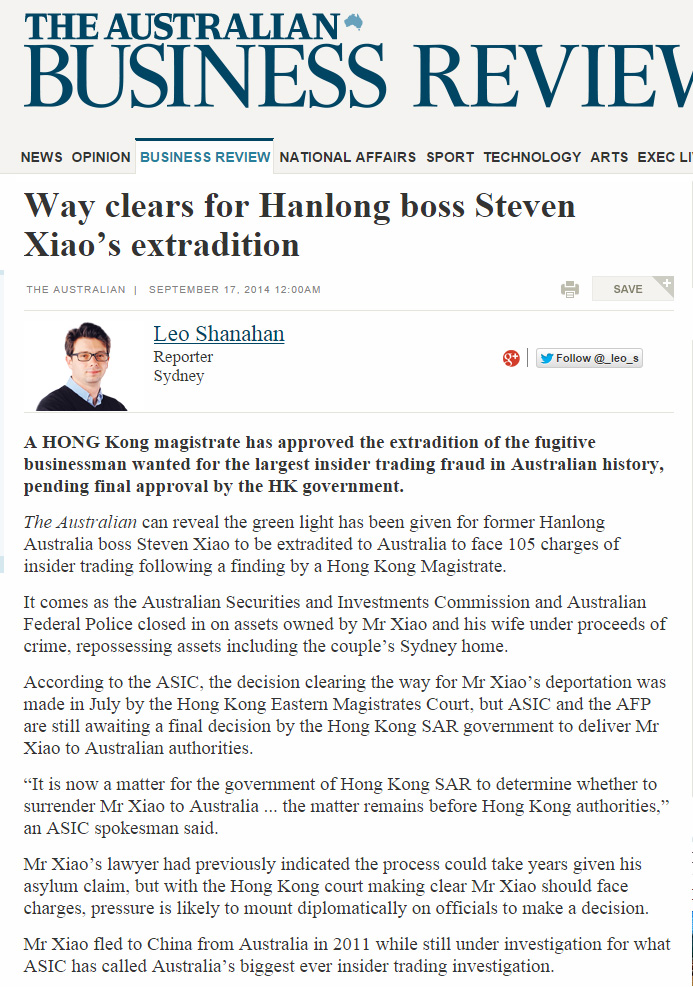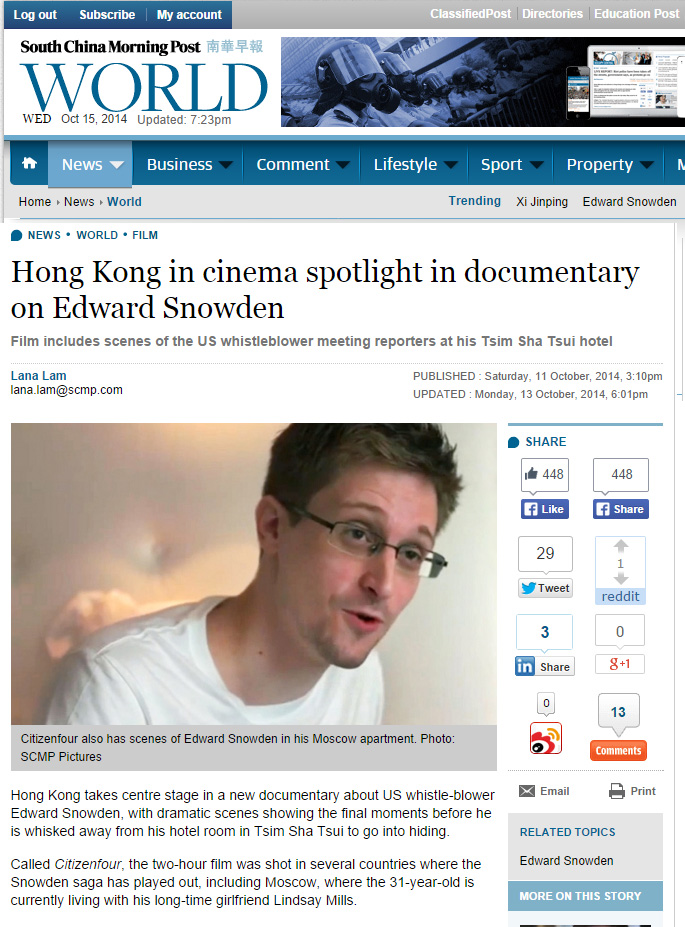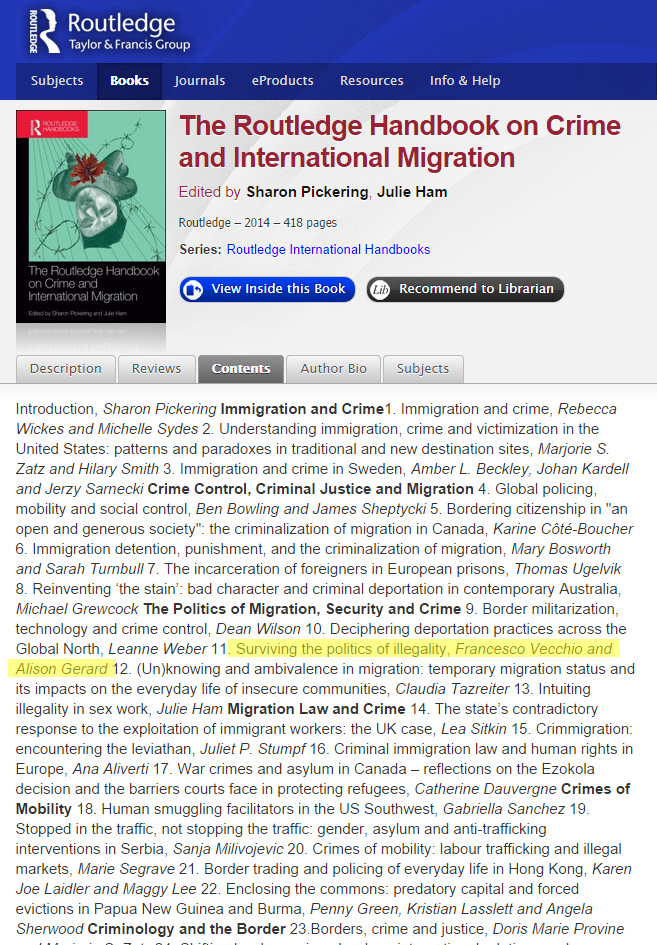Archive
VF Reports – Refugee family faces homelessness again
Oct 27th, 2014 | Advocacy, Housing, VF Report | Comment
Vision First reports that 15 months after losing their home, a refugee family from Togo risks being homeless again with two young children. On 16 July 2013 we reported this family’s predicament when a rental increase for a rundown flat in Cheung Sha Wan put the family on the streets. ISS-HK had refused to pay a 900$ rent increase and an inexpensive 4500$ flat was lost.
Ibrahim explained that he had gone to the ISS-HK office and suggested to sleep there, if he was not booked into a guesthouse, or provided with an alternative arrangement. Instead, Ibrahim says he was removed by the police that were called to deal with a welfare issue. A less than humanitarian confrontation ensued and was reported by AM730 daily, exposing the grim reality of refugees crushed between insufficient welfare and draconian jail sentences for working.
A few days later the family was accommodated in a guesthouse where they resided for over a month. This arrangement may have cost tax-payers at least 12,000$ that we think could have been saved if 900$ had been confirmed for the original home. That wasn’t the end of it: from September 2013 till October 2014, the family was housed in a To Kwa Wan flat estimated to cost 2000$ more than the 4500$ flat they had been evicted from.
How much public money was wasted between July 2013 and October 2014?
Fast forward one year and the family faces the same predicament. On 22 October 2014 Ibrahim was notified by ISS-HK (without a letterhead) that his family would be evicted on 30 October 2014. Further, Ibrahim reported that electrical power to the flat was cut the previous week allegedly to force his eviction. He complained to the SWD Head-office and an urgent intervention by SWD staff compelled ISS-HK to supply battery-powered lamps to prevent the family from living in the dark. Now Ibrahim is worried that the water supply will be cut, as that would be unbearable for his wife and children.
Ibrahim says that he was urged to find a flat for 6000$ a month, but the family was frustrated by sky-rocketing rents and a lack of bus money to go flat-hunting around Kowloon. Ibrahim had previously reminded his ISS-HK case worker, “I don’t mind if the new place cost 1000$ or 6000$. If it is suitable for my family I will take it. But don’t tell me to pay extra money, because I don’t have money and I am not allowed to work.”
Ibrahim was hopeful when last week ISS-HK asked him to inspect another flat in To Kwa Wan that he saw and found suitable. The place was good, but there was a problem. Ibrahim was told by ISS-HK that he should find 4000$ to close the deal, as the rent is 7000$ and his rent allowance 6000$. In practice, Ibrahim requires 2000$ to top up two months deposit, 1000$ for the first month rent and 1000$ for the utility deposits. Ibrahim was stunned by what he was told, knowing that he cannot obtain any money unless he gets a job.
Vision First respectfully asks SWD to confirm that Ibrahim and his wife are authorized to work for the time they require to raise $4000 and thereafter to raise $1000 to pay the rent surplus that ISS-HK seem unwilling to provide to pay the family’s monthly rent in full.
Ibrahim commented to Vision First, “ISS gave me a budget of 6000$, but then sent me to see a 7000$ flat and expects me to find 4000$ cash! What are they thinking? My case worker told me to call NGOs and find the money. I am not a beggar and she is paid to house me. She knows I have no money and cannot work. It is shameful that ISS give refugees low budgets and then expect them to sign contracts and struggle every month to find extra money for rent!”
For nine years Ibrahim endured the inhospitable conditions of seeking asylum in Hong Kong. He has learned to speak up for himself and hold his ground as a protection claimant who, it should be noted, hasn’t been screened by Immigration Department since he arrived in October 2005.
Ibrahim assures, “This time I will go to the media myself and bring this matter to the public’s attention. I will not become homeless again without a struggle. I will refuse to move into a guesthouse where my children suffered too much last year. There was no space to move in the small room and we ate instant noodles and biscuits for a month, because we were not allowed to cook.”
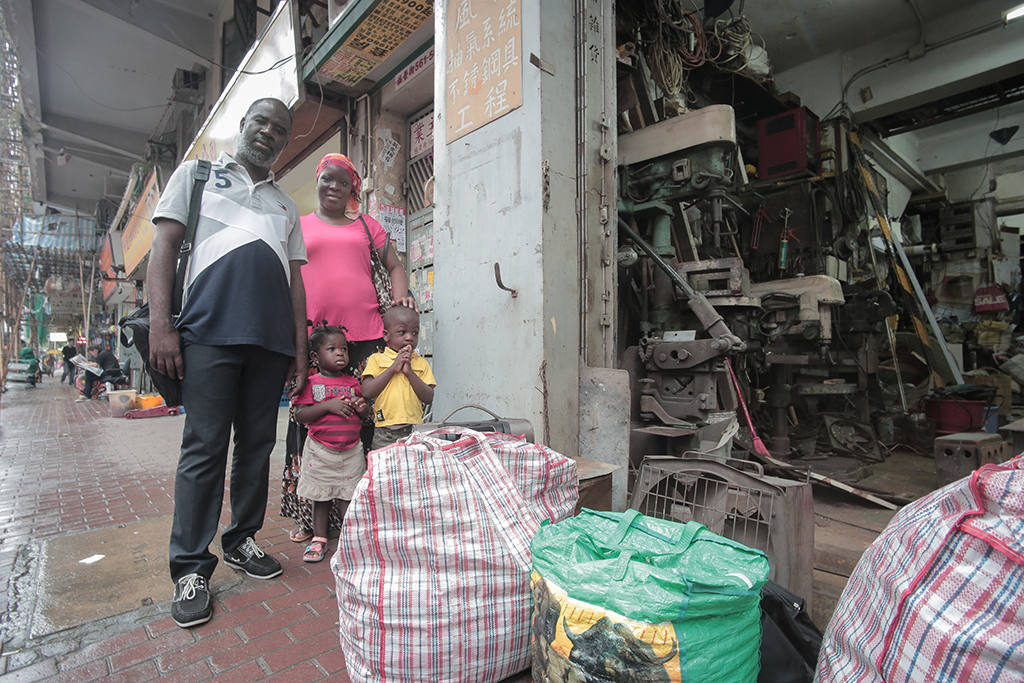
Who profits from the Revolving Door Scam?
Oct 24th, 2014 | Advocacy | Comment
The refugee community was recently buzzing on social media over a Facebook page that draws the spotlight of public scrutiny on the darker side of the trade in emergency food rations for cash. It is indeed widely known that refugees sell all or part of their rations for cash to buy culturally appropriate groceries and meet pressing financial needs disregarded by government assistance. It is also known that some may steal for the same reason.
However, it is unlikely that the individual in the Facebook page is aware of his alleged exploits going viral on social media. It is further unlikely that he boasted about it in the first place. The posts expose a reality that exists, although its contours are not always well defined. Interestingly, it reveals very convincingly the capacity of refugees to seize out of necessity the few opportunities that arise from a questionable welfare system. It might be illegal, yes. But no one seems to care.
Indeed this Facebook page might be the work of a person whose business was in decline and attributes his or her failure to an individual who might or might not be involved. A message dated 9 October 2014 claims, “I am proudly announce that i am one the Top Refugee who supply to all Major Provision store in hong kong, my customers are [list deleted] And Many more and also Thousand of customers who buy from Meat, Rice, Oil, Grocery, if anyone looking to buy cheap Refugee food, please contact with me”.
Legally speaking, refugees may eat, dump or trade food rations and do not break the law by reselling them, although the practice is understandably discouraged. In reality, we observe that, while such activities have been going on for years, nothing is done to address the underlying causes that sustain them. The trade appears to be condoned, or at least accepted, as a way for refugees to raise desperately needed cash. It was an open secret even before these images circulated.
Vision First calls this operation the “Revolving Door Scam” (first reported here on 3 April 2014) in reference to the re-circulation of food rations that are traded at half of market value until somebody takes them home to eat. The scam is encouraged by substandard quality, because the least attractive or edible groceries are, the more likely it is that refugees will sell them. The government sponsors of this operation should calculate the waste generated by a scam predicated on fundamentally flawed assumptions about what refugees need and what they eat.
Readers may draw their own conclusion on the masterminds behind the Revolving Door Scam that Vision First estimates to channel about 16 million HKD yearly into the pockets of cash-strapped refugees. In a convoluted fashion it has effectively become the ‘Cash-for-Food Program’ resisted by the government ostensibly to prevent refugees from indulging in vices. A refugee astutely suggested that since money is prioritized to activate mobile phones (an Immigration requirement to be released from detention), the scam ensures 24-hour traceability by authorities without the expense of an ankle-monitor program.
Finally, the broader impact of the scam on neighbourhood economics should not be overlooked as discounted rations cause the prices of foodstuffs such as rice, flour, sugar, ghee and oil to plummet to one-third of retail value. Not only are grocery shops, restaurants and canteens purchasing these cheap supplies, but it is reported that low-income families have become avid consumers for the savings achieved. Alarmingly, such end-user demand is growing and encouraging the trade.
Considering that thousands of these commodities are traded daily at heavily reduced prices, it is unsurprising that troubling ripples are causing unexpected consequences. It would be interesting to investigate not only who benefits from the Revolving Door Scam, but also why so many people appear willing to turn a blind eye despite it having been an open secret for many years.
Whose wheels are greased by this scam and why is it tolerated?
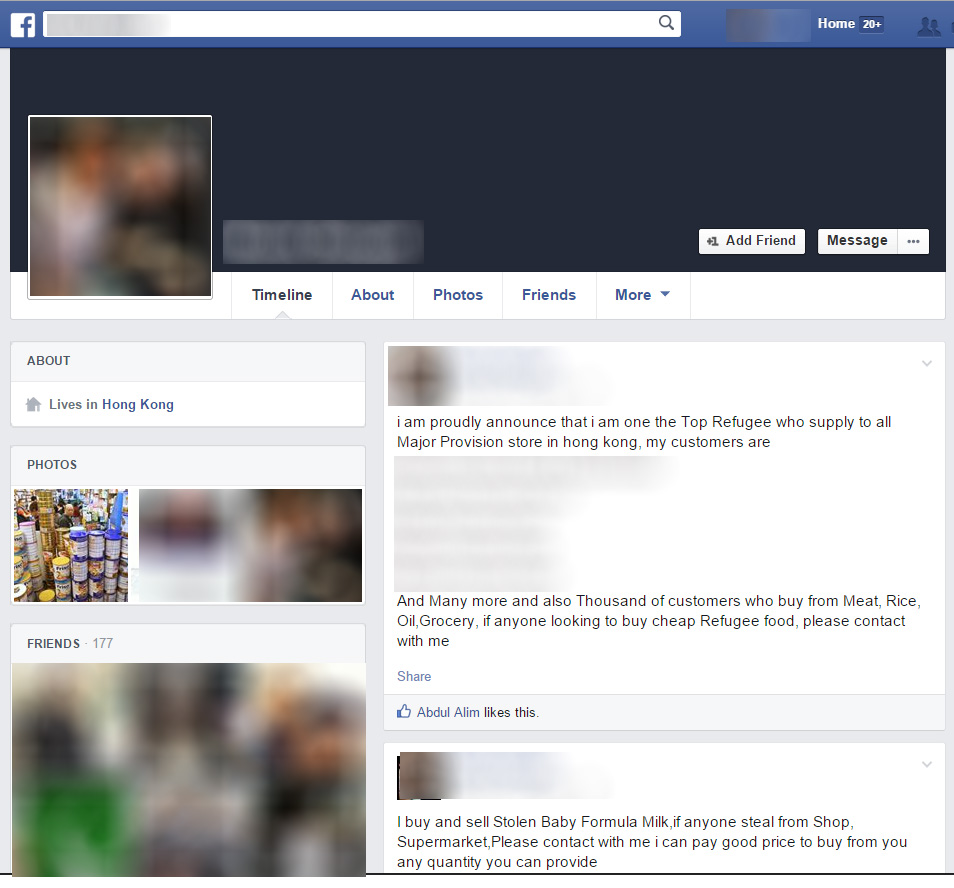
Digging beneath the issue of food value
Oct 22nd, 2014 | Advocacy | Comment
The problems plaguing the food distribution to refugees were raised again at the Refugee Union’s bi-monthly meeting on 20 October 2014. Refugees suffer a grim, insurmountable reality despite the promise of a fair asylum system made by this world-class city.
The government takes a firm stance in ensuring that stringent measures make Hong Kong inhospitable to those seeking asylum with the goal of deterring others in their footsteps. It is well-known that refugees are prohibited from working while forced to make ends meet with 1500$ in rent assistance and 1200$ in food rations. But do they even receive this little?
The problems relating to the food distribution system are less quantitative (Are 40$ a day enough to eat?), than structural (Do refugees receive 1200$ a month in groceries?) and administrative (Why do distribution failures persist?). Members of the Refugee Union expressed strong discontent at the in-kind food program that fails to deliver the value, quality and variety claimed by the authorities.
It is widely reported that law enforcement agencies are looking into this problem and have yet to either confirm or deny claims as researched and reported by the media, including South China Morning Post and Metro Daily. And yet refugee lament that their monthly food collections are still largely worth less than 1200$ a month. Has the government retreated from its responsibility to monitor and control the refugee food program?
Further, complaints were raised about infants who do not receive enough milk formula and some toddlers who are not provided with solid food at eighteen months of age. Mothers’ pleads to case workers are ignored month after month and desperate parents are compelled to beg for assistance when fair assistance is sidestepped without reasonable explanation.
Following recent reports that the food program contracts were renewed for nine months (possibly to account for three month’s investigation), it is apparent that the government has no plans to improve the system by providing refugees with cash, or alternatively issuing coupons. Without a new service tender, the current inadequate program will continue till mid-2015.
On the face of it, the absence of noticeable improvements seem to suggest that the government is satisfied with the implementation of in-kind food distribution to the refugee community. The Refugee Union exposed malpractices that raised serious concerns, but after the noise died down questions were met with silence and accusations were swept under the thick carpet of government bureaucracy, some might say, indifference.
Vision First is concerned that salient answers may be hidden in the contract between the Social Welfare Department and ISS-HK for welfare provisions to the refugee population. Despite repeated request by the media and several lawmakers, this key contract remains a government secret, as if it were a matter of national security, kept from the public eye for reasons that fly offensively in the face of transparency and accountability.
In light of the above, digging beneath the issue of food value uncovers problematic issues that, in our view, cannot be resolved without dismantling the entire refugee welfare system to implement programs that are based on wellbeing not deterrence, on legal concerns not immigration policies, on social justice not criminalization, on dignity not immiseration.
While injustice is the norm for refugees, the question we should ask is, why do refugees’ complaints so often fall on deaf ears? Who benefits from these arrangements?
